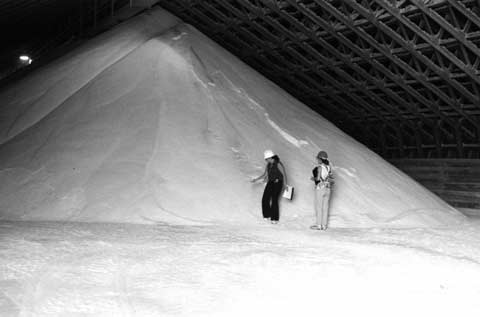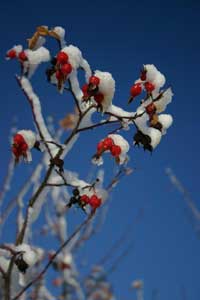This article is by Slow Food Edmonton members Terry Juzak and Jennifer Cockrall-King. It appears in the current Slow Canada newsletter supplement for all Canadian Slow Food members. Posted with permission by authors.
“A meal without salt is no meal.” - Hebrew Proverb
As food writers on the prairies, we’re always on the lookout for interesting local foods. From time to time, we come across a few spectacular regional products that make us well up with culinary prairie pride: Highwood Crossing Farm’s cold-pressed non-GMO organic canola oil, Du Bois lake-grown organic wild rice, Sylvan Star’s aged Gouda and cheddar or maybe just a really great saskatoon pie.

So when researching and writing a story on prairie salt, we had a small crisis of faith. Food pages everywhere had articles about the rebirth of salt as a gourmet ingredient and we had a major salt production facility just two hours north of our home base in Edmonton. The problem was, our salt had very little glamour (except, perhaps the two of us in our hard hats covered in a thin dusting of salt by the end of the tour), and definitely none of the cachet of those sexy, many-coloured sea salts. This was run-of-the-mill iodized table salt. Pure white. Grainy. Ordinary. And whether you were a Sifto or a Windsor Salt household, there was likely a one-pound bag of pickling salt in your grandmother’s pantry and a rectangular cardboard spout-pour box of table salt in your cupboard too. When we took another look at this simplest of foods, however, we found that though it may be ordinary, what we were also looking at was the original prairie ingredient.
Read the rest of this entry »



